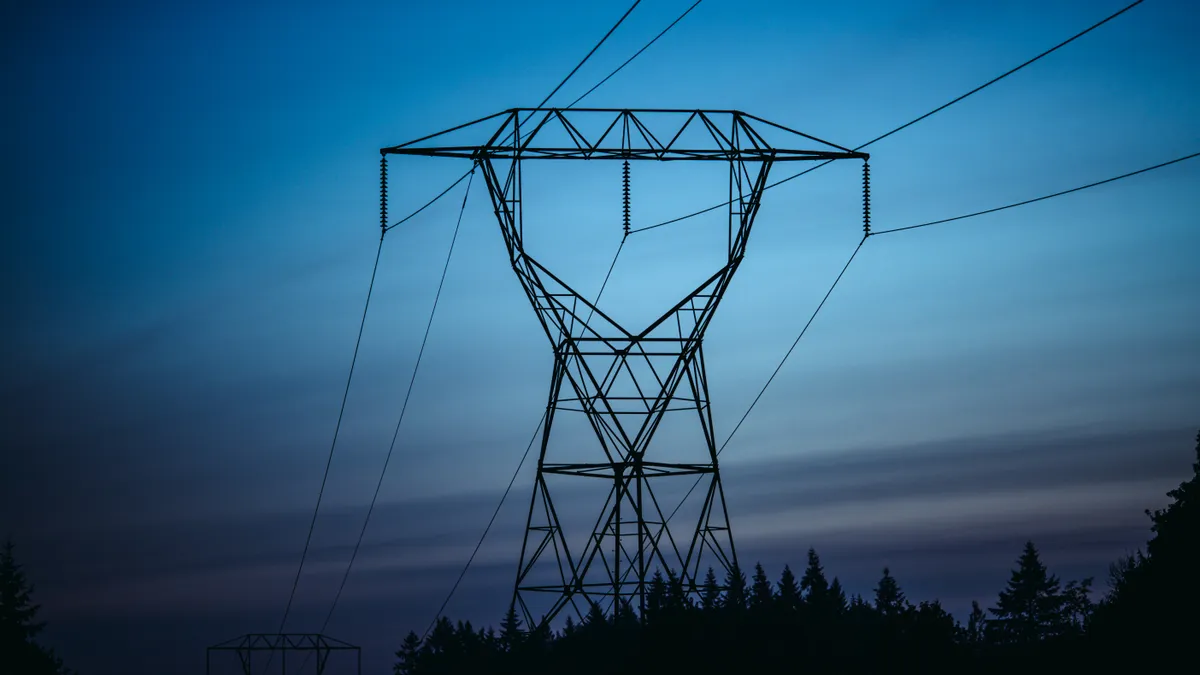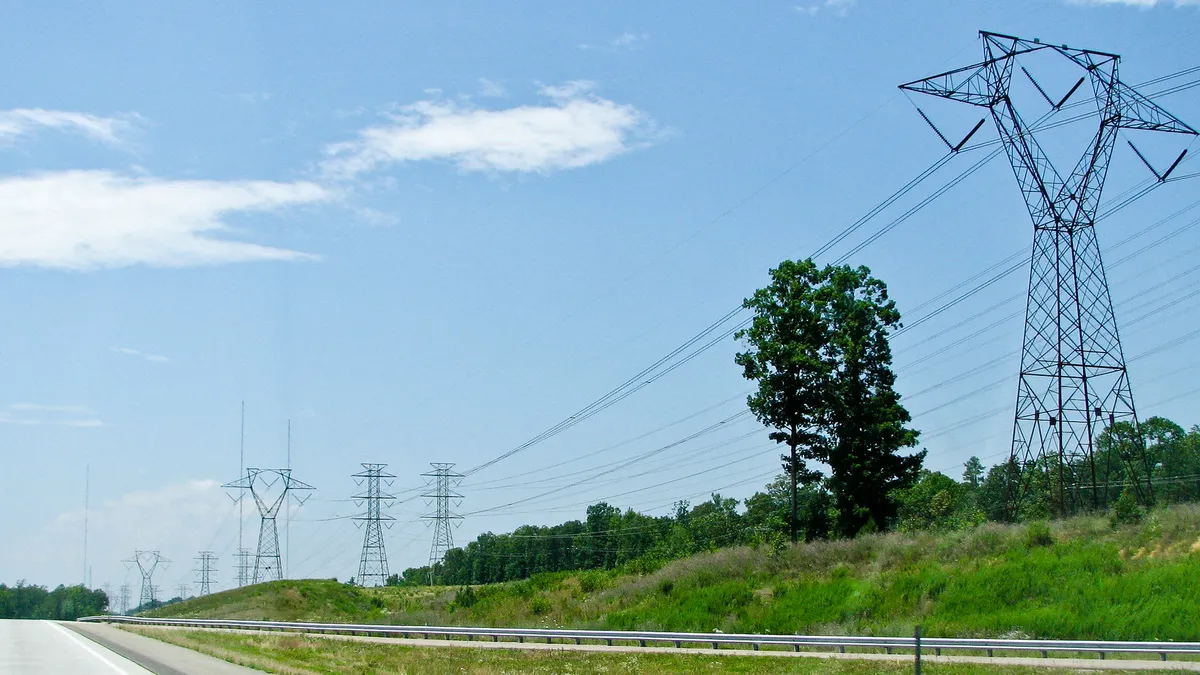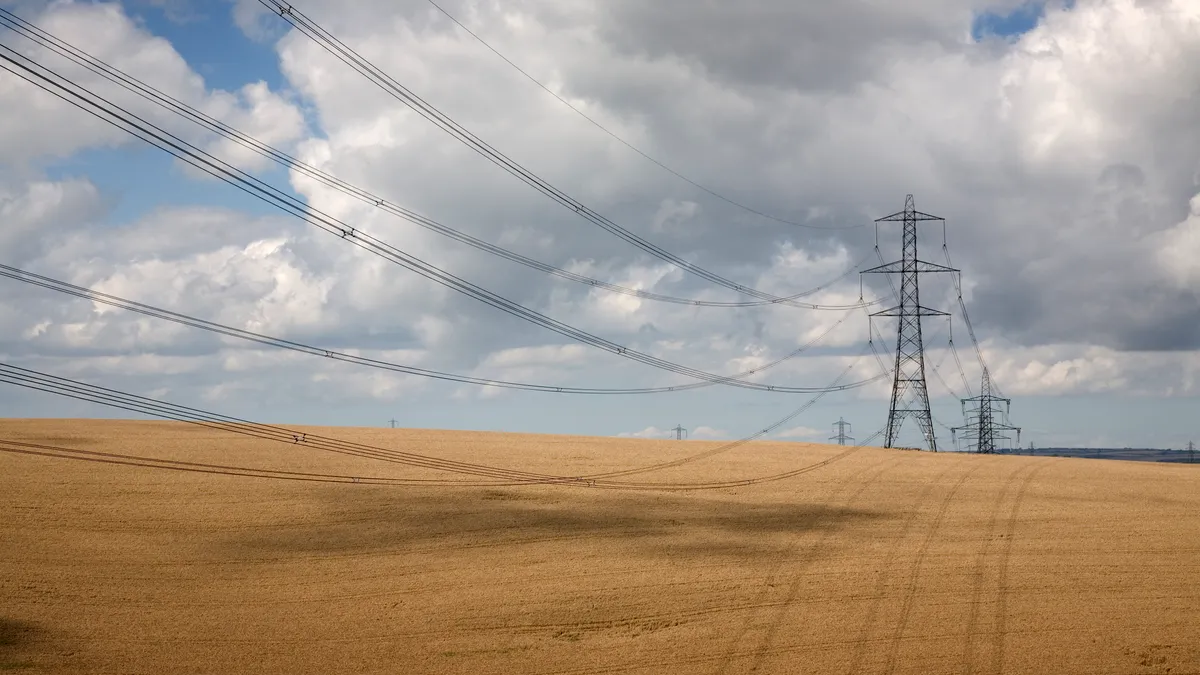Lawmakers in at least five states are considering bills to give incumbent utilities a right-of-first-refusal to build transmission lines that grid operators put out to bid, excluding independent transmission companies from the business.
The legislation comes ahead of an expected transmission buildout that is viewed as needed to improve grid reliability and provide access to areas rich in wind and solar resources. The bills could determine who builds and profits on parts of that buildout: incumbent utilities or independent transmission companies.
The financial stakes are large. The Midcontinent Independent System Operator, for example, last year approved a $10.3 billion transmission expansion plan and is developing a second expansion round slated to be approved in mid-2024 that could cost $20 billion to $30 billion. In states without ROFR laws, the projects will be put out to bid.
Eight MISO states have ROFR laws, which give utilities the exclusive right to build transmission. Those states are Iowa, Indiana, Michigan, Minnesota, Montana, North Dakota, South Dakota and Texas.
Legislators act on ROFR in six states
Indiana, Kansas, Missouri, Mississippi and Oklahoma could join those states under pending legislation. A bill in Minnesota would repeal the state’s ROFR law.
The Indiana House approved a ROFR bill on Feb. 20 and sent it to the Senate. A similar bill passed the Mississippi Senate earlier this month. The Montana Senate Energy and Telecommunications Committee was set to hold a hearing on ROFR legislation on Feb. 23.
ROFR laws are already affecting transmission development. In Texas, which bans non-incumbent utilities from building transmission, MISO has asked the Federal Energy Regulatory Commission for permission to cancel a $115 million transmission project that was awarded to a NextEra Energy subsidiary because of the state’s ROFR law.
On Feb. 16, the Public Utilities Commission of Texas ruled the ROFR prevents the agency from issuing a permit to Grid United, an independent transmission company, to build a 280-mile 525-kV high-voltage direct-current Pecos West project between El Paso Electric’s territory in the Western Electricity Coordinating Council and LCRA Transmission Services in the Electric Reliability Council of Texas. Grid United withdrew its application the next day.
Also, pending ROFR legislation in Indiana threatens an ongoing solicitation run by MISO for a roughly $250 million project, according to Sharon Segner, LS Power Development senior vice president.
Competition leads to delays, cost increases: utilities
Utilities contend that competition doesn’t work in the transmission sector.
“Certain industries exhibit monopoly tendencies and sometimes more traditional regulatory tools will offer a better outcome for consumers, and the electric industry is just one of those examples,” Tony Clark, a senior advisor at Wilkinson Barker Knauer, told the Kansas Senate Utilities Committee on behalf of transmission company ITC Great Plains.
FERC’s Order 1000, which governs transmission planning and aimed to inject competition into the process, has led to increased costs and project delays, according to Clark, a former FERC commissioner. If the legislation is not enacted, transmission will take longer to build and may lead to higher costs for customers, he said.
In solicitations for transmission projects, companies low-ball their bids to win the solicitation, Clark said. Also, the transmission companies may not understand the parameters of a proposed project compared to an incumbent utility that knows the geography and weather conditions a transmission line may have to withstand, he said.
“Return of accountability to local utilities will result in more Kansas oversight, better cost outcomes for customers and the ability to timely invest in the Kansas electric system,” Darrin Ives, Evergy vice president for regulatory affairs, told the committee.
The Kansas Farm Bureau, Liberty Utilities, Midwest Energy and Sunflower Electric Power also supported the bill, which was introduced at the request of ITC Great Plains, according to a brief prepared by legislative staff. ITC Great Plains is part of ITC Holdings, a Fortis subsidiary based in Novi, Michigan.
Utilities are trying to freeze out other companies from building transmission lines needed in the future, according to LS Power’s Segner.
“These bills are their vehicle,” she said in an interview. “It's a fight over whether or not they have a monopoly for the clean energy transition.”
Consumer groups join anti-ROFR fray
In a change from previous ROFR debates, a broad coalition that includes consumer and business groups has come out against the laws, according to Segner.
“The consumer voice in objecting to these ROFR laws is galvanizing, and our observation is that the opposition to these ROFR laws is growing,” she said. “They're not fighting transmission in and of itself. What they're saying is they want it to be cost effective, and they want it to be competitive.”
In Kansas, the ROFR bill is opposed by Americans for Prosperity, the Clean Energy Business Council and Climate + Energy Project, Kansans for Lower Electric Bills, Kansas Agribusiness Retailers Association and Kansas Grain and Feed Association, the Kansas Chamber, LS Power, NextEra, Polsinelli Energy Practice Group, R Street Institute, Spirit AeroSystems and the Wichita Regional Chamber of Commerce.
Through reduced competition, the bill will increase electricity costs and transmission charges, according to Heath Koehler, Spirit AeroSystems senior manager for global facilities management.
“These benefits of competition include innovation, higher quality of service and lower prices,” he said.
Kansas Corporation Commission staff was neutral on the bill, according to Justin Grady, chief of revenue requirements, cost of service and finance at the KCC. There are pros and cons with the status quo, he told the utilities committee.
On the positive side, there were significant cost savings in the 345-kV Wolf Creek-to-Blackberry project that SPP awarded to NextEra in 2021, he said. The contract included cost caps and return on equity “concessions,” he said. But the bidding process adds complexity and delays to project development, Grady said.
US Supreme Court may weigh in on key ROFR case
ROFR laws are being challenged in court.
In a move supported by Entergy, ITC Holdings and Xcel Energy’s Southwestern Public Service, the Texas PUC in December asked the U.S. Supreme Court to reverse an appeals court finding that the state’s ROFR likely violates the U.S. Constitution’s dormant Commerce Clause. The Supreme Court hasn’t said whether it will take the case.
Also, the Iowa Supreme Court on Feb. 21 heard oral arguments on LS Power’s challenge to Iowa’s ROFR law. In July, the Iowa Court of Appeals upheld a district court decision that dismissed an LS Power lawsuit that argued the state’s ROFR violated the Iowa constitution. The district court said LS Power lacked the right to sue because it hadn’t been hurt by the law.
In support of LS Power at the state high court, the Coalition of MISO Transmission Customers, a group representing large industrial and commercial companies, said ROFR laws lead to higher electricity prices.
MidAmerican Energy told the court that the district court made the right decision dismissing LS Power’s suit and declining to put a hold on the ROFR law.
“The [Iowa Utilities Board] regulates every aspect of MidAmerican’s business, including how responsive it is to end-user reliability issues,” the utility said. “Additionally, that regulatory scheme specifically includes rates which must be reasonable and cost based. A non-incumbent, like LSP, is not subject to the same regulatory compact to provide services.”























